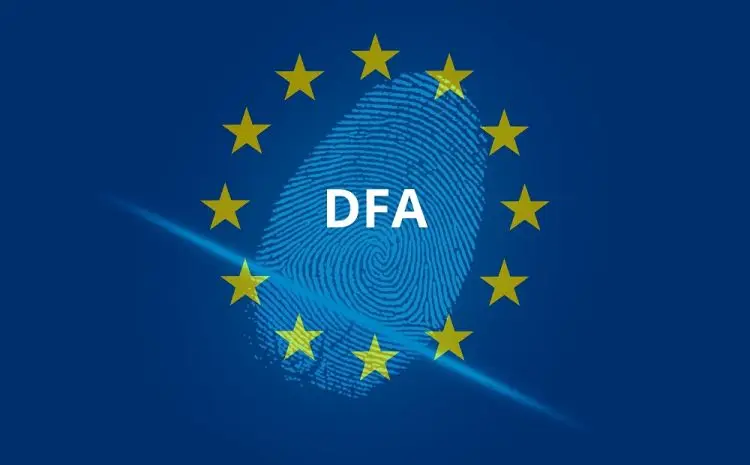Fair’s fair: preparing for the new EU digital fairness regime

Ensuring that consumers are treated fairly by businesses online – driven by concerns about an increasingly complex, evolving online environment – is a key priority for the European Commission.
The current ‘problem statement’ in this area has been informed by the outcome of the Commission’s 2024 Digital Fairness Fitness Check. This review examined the effectiveness of the three Directives that underpin the current EU consumer protection regime (namely the Unfair Commercial Practices Directive, the Consumer Rights Directive, and the Unfair Contract Terms Directive). It identified legal uncertainty, a risk of fragmented national laws and the need for rules better adapted to the specific harmful practices and challenges that consumers face in today’s online world.
This concern has been succinctly highlighted by Michael McGrath, the EU Commissioner for Democracy, Justice, the Rule of Law and Consumer Protection, who has remarked that “the vast majority of the consumer protection legislation that we have in the EU was not designed for the digital age”.
In response, the Commission is currently developing a new Digital Fairness Act, designed to address the identified gaps and increase legal certainty regarding the protection of consumers online.
So, what are the specific regulatory priorities that consumer facing online businesses in the EU should have on their radar?
The Commission’s recent Digital Fairness Act call for evidence provides a number of insights into what it is expected to address. They include the following:
- Combatting ‘dark patterns’ – unfair techniques that pressure, deceive and manipulate or manipulate users during the sale process, such as creating unnecessary pressure through false urgency claims.
- Addressing concerns about addictive design, particularly aimed at minors – such as gambling-like features in video games.
- Unfair personalisation that takes advantage of vulnerable consumers –targeted advertising and pricing practices focused on consumers with financial challenges.
- Responding to the increasing role of online influencers – ensuring that the rules are clear regarding the disclosure of commercial communications and promotion of harmful products by influencers, as well as the responsibilities of the companies who partner with them.
- Addressing unfair practices related to online pricing – such as ‘drip’ pricing, where new charges are included late on in the sale process, or dynamic pricing.
- Ensuring fairness with online subscriptions – including difficult cancellations of subscriptions, auto-renewals or free trials converted into paid subscriptions.
With a legislative proposal not expected to materialise before Q3 2026, there is still some time for the Commission to refine its position on these issues. However, given all the previous thinking that has been done, the priority issues are clear.
We see three immediate strategic considerations for the business-to-consumer companies that will need to respond to this new regime.
First, some of these practices may already be covered (and also implemented to a greater or lesser extent at EU Member State level) by existing EU law and regulation. For example, the Unfair Commercial Practices Directive is already relevant to the enforcement of certain dark patterns, as is the Digital Services Act. Clearly the Commission considers that a new, targeted legislative Act is necessary to ensure a harmonised and well-understood approach. Nevertheless, identification and remediation of any overlaps will no doubt be relevant to the Commission’s Simplification agenda. Therefore affected companies should be ready to highlight these potential overlaps in the context of the Commission’s forthcoming Digital Omnibus simplification package (which is focused on making compliance processes less complex and more efficient across the EU).
Second, and in no small part due to the previous point, there is already much that online services can do to ensure they stay on the right side of the regulatory concerns that would underpin a new Digital Fairness Act. This should include reviewing their consumer-facing online activities and design principles so that they do not present unfair and/or misleading claims to consumers online. It will also be important to be able to demonstrate that design choices have been made with consumer fairness and neutrality in mind and robust governance processes are in place to deliver fair consumer outcomes.
Third, insights can also be drawn from activity under the UK Competition and Markets Authority as part of the UK’s new targeted digital consumer regime. A number of the practices identified as being of concern are common to both the UK and the EU. With the CMA expected to prioritise the enforcement of such practices under the new rules, there is much that can be learned as result (something we have previously written about at The Digital Markets, Competition and Consumers Act (DMCCA) consumer protection regime is now live).
Deloitte’s multi-disciplinary Digital Regulation team is comprised of a range of experts with experience across digital regulatory issues. For expert guidance and support in navigating and adapting to the fast-moving digital regulatory landscape, please reach out to one of the contacts listed below or sign up to the Deloitte quarterly digital regulation newsletter.

Amber Andrade
Partner, Forensic and Financial Crime Team amandrade@deloitte.co.uk

Robert MacDougall
Director, EMEA Centre for Regulatory Strategy rmacdougall@deloitte.co.uk

Matteo Orta
Manager, EMEA Centre for Regulatory Strategy morta@deloitte.co.uk




